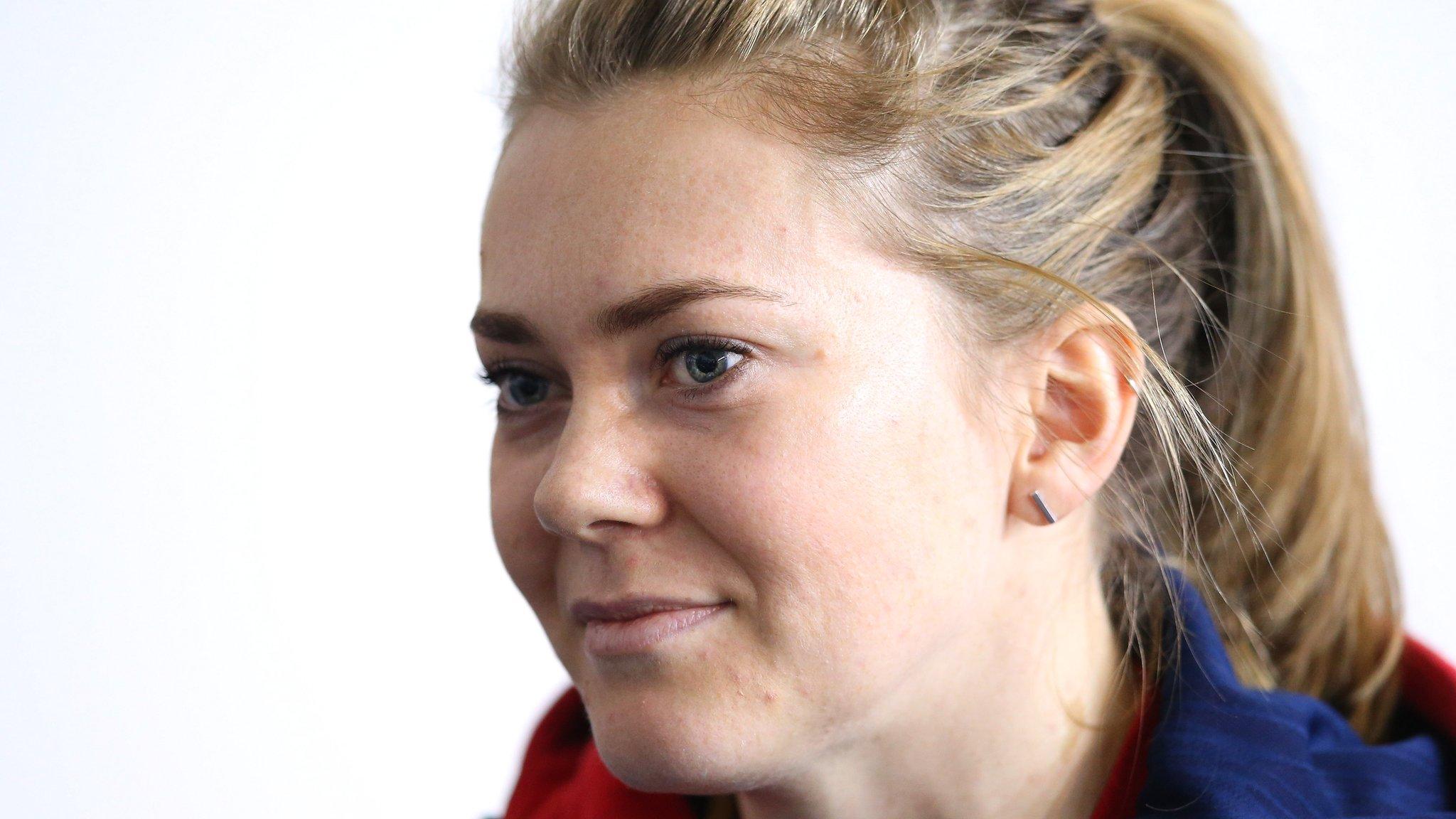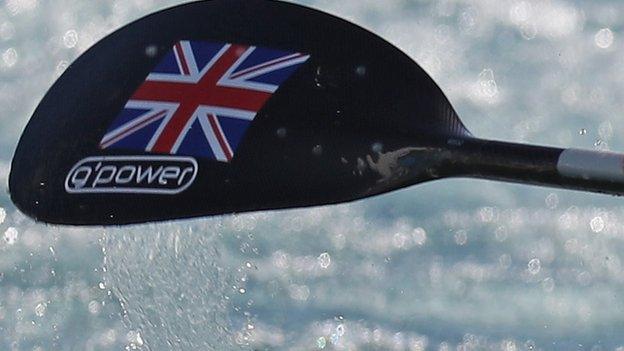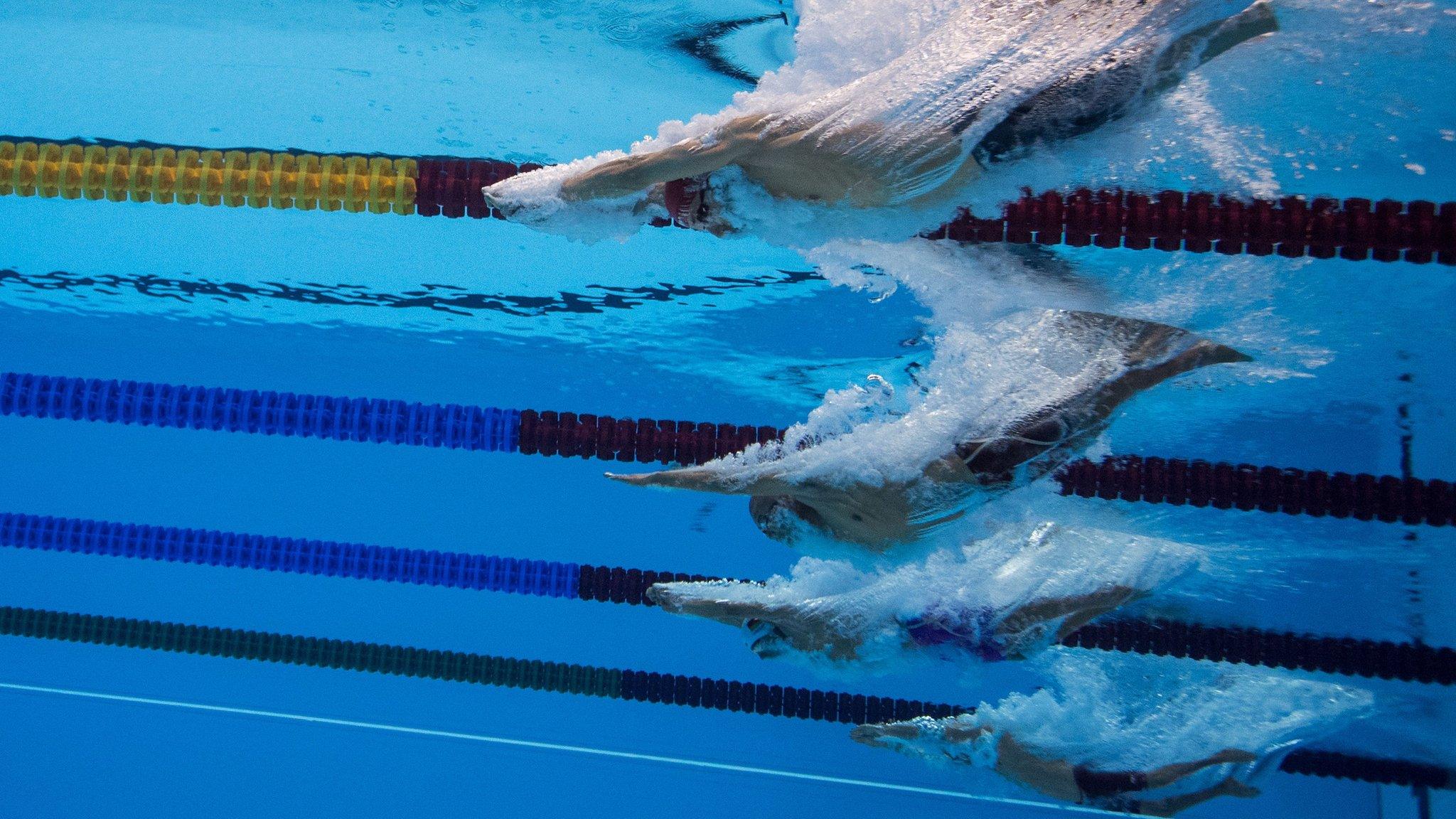Baroness Grey-Thompson calls for welfare improvements
- Published
Grey-Thompson backs welfare improvements
Recommendations aimed at improving athletes' welfare have been published as part of a major independent report into British sport.
They are the result of a year-long duty of care review, commissioned by the UK government and led by 11-time Paralympic gold medallist Baroness Grey-Thompson.
It comes amid a spate of bullying allegations against coaches, mounting concern over the use of medication, and the effects of head injuries in some sports, as well as the child sex abuse scandal in football.
Baroness Grey-Thompson's recommendations include:, external
a Sports Ombudsman created by the government that has the power to hold national governing bodies to account for the duty of care they provide
an independent benchmark survey to measure duty of care
a board member at every national governing body responsible for duty of care
exit survey for elite athletes as they leave performance programmes
a duty of care charter
a government-funded British Athletes Commission
mandatory reporting of any suspected abuse
"Recent media reports and anecdotal evidence from across a range of sports has led to questions about whether welfare and safety really are being given the priority they deserve," said Baroness Grey-Thompson.
"The sector is arguably under more scrutiny than ever before, with allegations of non-recent child sexual abuse in football, and accusations of a culture of bullying in some sports.
"At a time of success for British sport in terms of medals, championships and profile, this raises challenging questions about whether the current balance between welfare and winning is right and what we are prepared to accept as a nation.
"Questions are being asked about the price being paid for success. It is clear that the drive for success and desire to win should not be at the cost of the individuals involved."
The British Athletes Commission (BAC) welcomed the findings, with chief executive Ian Braid noting satisfaction that the organisation has been listened to.
"The BAC now sees potential to grow its influence in performance sport helping to sustain success and give athletes more of an effective voice," he said.
Speaking last month, Jess Varnish says she is 'relieved truth is coming out'
The background
Despite unprecedented performance success in recent Olympics and Paralympics, there are concerns that British sport may have neglected duty of care commitments.
British Swimming and British Canoeing are the latest governing bodies to investigate athlete duty of care complaints.
Meanwhile, several ex-riders, including Jess Varnish, Nicole Cooke, Emma Pooley and Wendy Houvenaghel have spoken of "a culture of fear" at British Cycling.
Last month, UK Sport chief executive Liz Nicholl described the controversies as "a wake-up call for sport". However, she has denied that her agency's 'no-compromise' approach may have contributed to the problem by strictly linking funding to performance potential.
She has said that the reforms made at British Cycling can act as a model for other sports.
British Cycling's new chairman Jonathan Browning has apologised for its failings, and a 39-point action plan designed to improve athlete welfare has been introduced.
Meanwhile, an independent review of the world-class performance programme at British Cycling has been concluded, but publication of its report has been delayed due to legal wrangling.
British Cycling chairman Jonathan Browning says some failings within the organisation have been 'unacceptable'
- Published26 April 2016

- Published31 March 2017

- Published23 March 2017

- Published10 March 2017

- Published3 March 2017

- Published1 February 2017